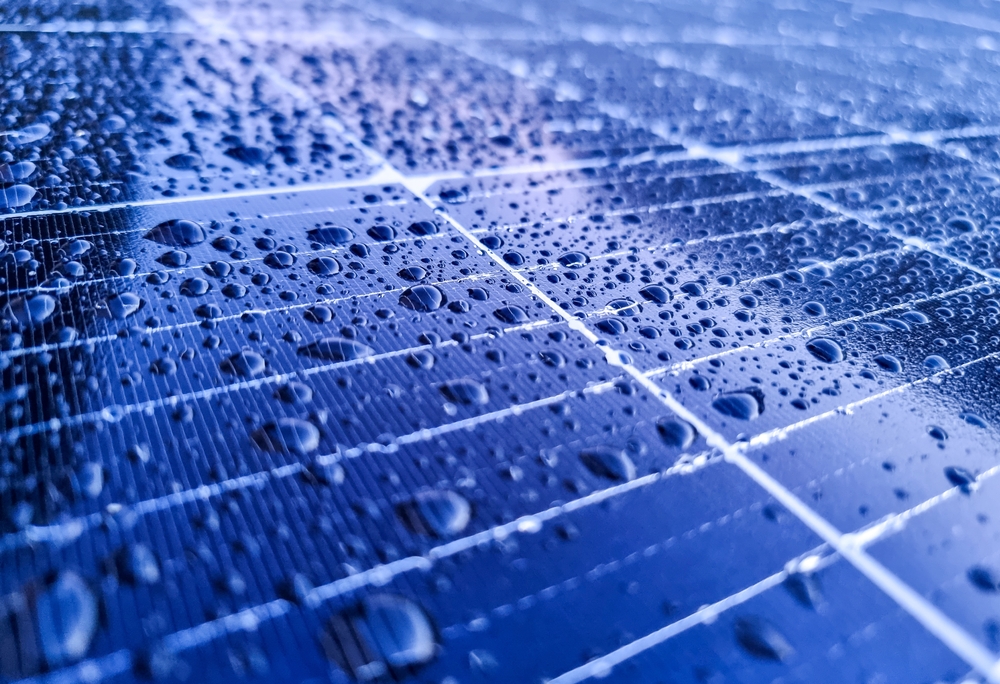
Prospective solar power clients often have understandable questions about how their solar panels will perform in adverse weather conditions, and solar in wet weather is a great example. How do solar panels perform during rainy seasons, and what should you be thinking about when it comes to solar in wet weather?
At Intermountain Wind & Solar, we're here to offer a comprehensive range of commercial and residential solar power services to clients across Salt Lake City, Utah and Boise, Idaho areas. We provide clients with all the important information they need on their solar panels, including what to expect during instances of poor weather. Here are some basics on solar in wet weather, including the ways your panels continue to create energy for your home and other needs even during many rainy days.
When it comes to solar in wet weather, an important concept to keep in mind is diffused light production. This refers to the amount of sunlight that is scattered and indirectly reaches your solar panels, as opposed to direct sunlight. While direct sunlight is ideal for optimal energy production, diffused light can still be harnessed by solar panels and converted into usable energy.
In fact, modern solar panels are designed specifically to capture both direct and diffused light. This means even on overcast or rainy days, your solar panels will still continue to produce energy for your home. The efficiency may not be as high as on a sunny day, but it will still contribute towards reducing your overall energy costs.
Now, depending on the levels of both direct and diffused sunlight, there are some such situations where rainy or cloudy conditions will lead to diminished production while the sun is obscured. Exactly how much this will happen depends on a variety of factors, including the type and quality of solar panel used, the amount of direct and indirect light available, and the overall weather conditions.
However, even with these potential drawbacks, solar panels still provide a reliable source of renewable energy for your home, even when it's raining.
Two key factors that influence how your solar panels perform during rainy conditions are the quality of the panels and their installation angle, also known as tilt. High-quality solar panels are designed to withstand harsh weather conditions and continue functioning efficiently despite rain or cloudy skies.
Additionally, the tilt of your solar panels can greatly impact their performance. Panels that are installed at a steeper angle are better able to shed water, debris, and snow, allowing them to continue producing electricity even during inclement weather. It is important to work with a professional installer who can ensure your panels are positioned at an optimal angle for maximum efficiency.
Furthermore, rain events can actually have a positive impact on the performance of your solar panels. Rainwater can act as a natural cleaning agent, removing built-up dirt and dust from the surface of the panels. This is especially beneficial for those who live in dry or dusty areas, as regular rainfall can help keep their panels operating at peak efficiency.
Now, it's important to note that occasional rain events should not serve as your only form of cleaning for your solar panels. Over time, dirt and debris can still accumulate on the surface, causing a decrease in efficiency. That's why it's recommended to clean your panels at least once or twice a year using more in-depth methods (including professional assistance if needed).
Another common question from clients here revolves around rainstorms that also include lightning. Luckily, this will not be a concern for your solar panel system - as long as the system was installed properly by a professional who took the proper grounding steps.
For those unaware, because solar panels are electrical systems in nature, grounding them properly is necessary for safety purposes. This will help to direct any electrical current from lightning strikes into the ground, protecting your home and system from potential damage.
As you can see, you can still expect power generation from your solar panels on most rainy or cloudy days, even if production might sometimes be a bit lower for temporary periods. To learn more about this, or for information on any of our solar panel services around Utah and Idaho, contact our team at Intermountain Wind & Solar today!





"All of the photos on this website are of real projects that Intermountain Wind & Solar has designed and installed.
We are proud to show off and stand behind our work."